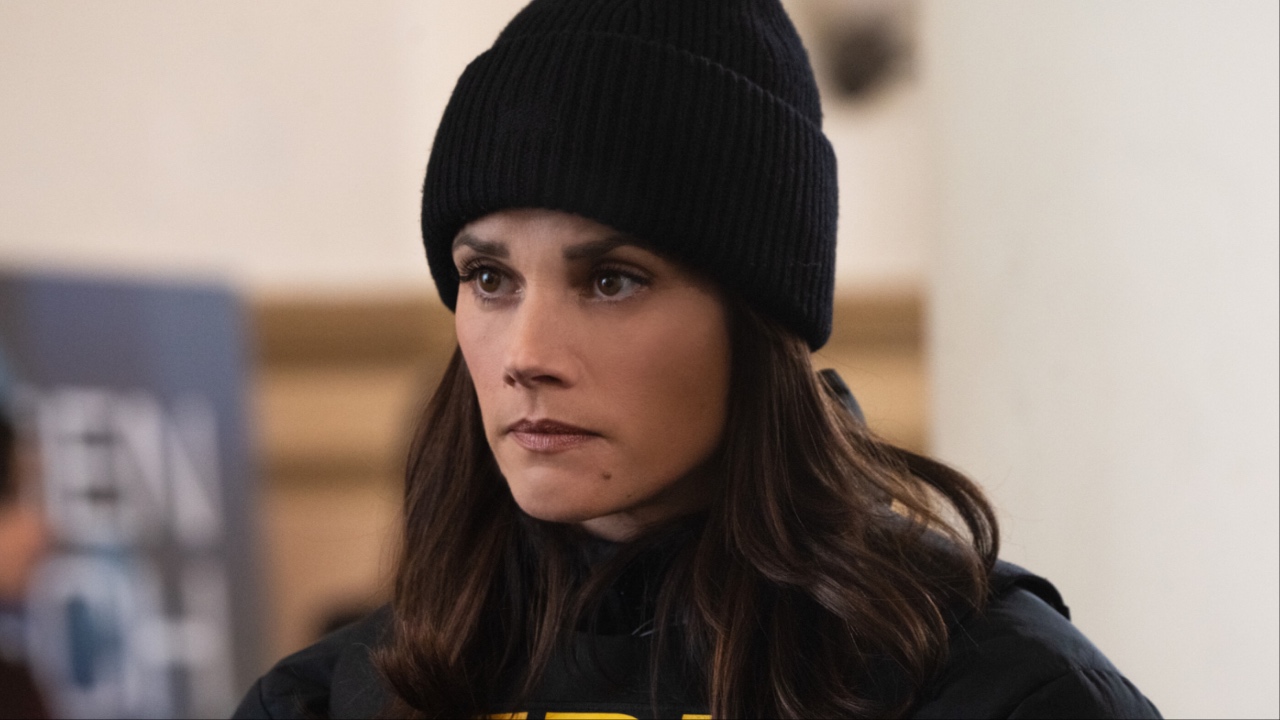Viscerally veiled in vengeful violence, a vigilant tale of vibrant victory over a vicious viceroy whose volatile violations are vanquished by V for a vendetta in value and virtue. V for Vendetta is a film that comes close to transcending the comic book genre’s thematic limitations by focusing on the ideals behind the anti-hero “V,” rather than the character himself and is victorious in it’s aspirations of being something more than a superhero-in-tights movie. Being too caught up in minute character detail is the reason why most comic book movies will never transcend it’s genre to become something more than a movie about a masked hero saving the day. For eight years, comic book movie productions have had to deal with endless complaints from fans because the costume wasn’t right or a character’s origin was altered in its transition from the comic book pages to the silver screen. V for Vendetta, however, is not “most comic book movies."
Set in a future totalitarian Britain, the film opens the same way many comic book stories do - a damsel in distress is saved by our hero who will save the world in a matter of two hours. Yet, from this banal opening scene, V for Vendetta begins to branch off from the standard fair of follow the hero’s struggle and quest for peace. Instead, the story is mostly told through the eyes of the aforementioned damsel, Evey (Natalie Portman). Although V, our charming masked hero with an inclination for alliteration, drives the story with his “rage against the machine” antics, it is through Evey that we connect with the patriotism that resonates through the film.
While V is busy broadcasting his call to arms to the oppressed British citizens and dispensing of the government fat cats, Evey’s transition out of the darkness of fear and into the light of freedom fighter is not as easy. War, famine, disease are all terrifying realities that threaten our in-born instinct of self-preservation. Evey’s non-consenting journey toward understanding that there are ideas in life more important than “self” is, by far, the most progressive theme in the genre filled with films about tolerance and outsiders. Although the critical overtones of the Bush administration are undeniable, such commentary should be taken with a grain of salt. Neither veiled nor vindicated, these Bush-era criticisms are better left in the background of a story whose major theme is of an awakening of a social conscience. Yet, V’s greatest battle is against the genre’s definitions of what a comic book movie has to do to succeed.
As the film’s themes ascend toward the heavens, its unstable visual wings begin to melt. Unfortunately for director James McTeigue, he cannot resist temptation to fall back on roots as the first assistant director of the Matrix films. Although McTeigue sluggishly spoon feeds us the plot (which can be attributed to his first outing as director), the social themes cause us to nearly forget about the horrible “just like The Matrix” theatrical marketing campaign -- until V’s final visually-saturated, slow-motion conflict that does no justice to the character nor his message. It seems out of place and tacked on to appease the Matrix fans who were probably pouting for two hours when they were given themes with a message rather than mindless, stylized violence.
Nevertheless, V for Vendetta is victorious in its aspirations of being something more than a superhero-in-tights movie. Just as the character’s message was greater than the character himself, V for Vendetta's importance in the comic book genre goes beyond the film itself. Just as Sin City attempted to revolutionize the genre visually, V attempts to do it thematically to show that a comic book movie can go beyond character and plot points and become something much more important - a film with a message. We should all be very thankful that November 5 does not fall on a Tuesday this year. However, we didn’t escape the instantaneous double-dip of Warner releasing both a single- and double-disc DVD. It’s actually triple dip if you count a full screen single disc release, but considering this is the year 2006, the full screen / widescreen debate is dead and you need not to concern yourself with the full screen version (but be careful you don’t accidentally pick it up).
The 2:35 : 1 anamorphic widescreen presentation is stunning. The darks are rich, the lights are vibrant and everything in between shines. Unfortunately, the disappointing Dolby Digital 5.1 sound drops the ball, as the side and surround channels often overpower the center channels dialogue - particularly when V is speaking, as he does so behind a mask - forcing the volume up and a rude awakening (for your neighbors) when buildings explode. A word of advice, keep the volume remote in hand.
In the way of supplements, both releases lack something to be desired. Disc one offers a 16-minute, making-of featurette you’d come to expect from a media press kit. The biggest disappointment of either the single- or double-disc set is the absence of a commentary track, and it appears that the single disc release is the exact same disc as the first disc in the two-disc set.
Moving on to disc two of the “Special Edition,” we are given three featurettes that barely total a combined length of 45 minutes. Of the three featurettes, perhaps the only one worth watching is “Remember, Remember: Guy Fawkes and the Gunpowder Plot.” This could have been a wonderful opportunity to learn more about Guy Fawkes and his importance both historically and in terms of influencing the character. Instead, it is the shortest featurette clocking in at about 10 minutes. The other two featurettes, "Designing the Near Future" and "England Prevails: V for Vendetta and the New Wave in Comics" are scraps of what could have been interesting DVD supplemental material. Disc two is then rounded out by a fairly lame music video and theatrical trailer.
Although the two-disc “Special Edition” has better DVD cover art, I can hardly recommend it over the single-disc release, as the 40 minutes of featurettes hardly justifies the approximate $10 difference. If you opt for the single-disc edition, rest assured that you aren’t missing anything. Fortunately, the movie (any DVD’s best feature) doesn’t disappoint.
FBI's Latest Gruesome Case Was Hard To Watch, And I Really Needed CBS To Give Maggie A Happy Ending
The Stars Of Black Mirror’s Common People Have Their Own Theories On What That Bleak Ending Really Means, And I Loved Seeing Them Figure It Out In Real Time
Ahead Of NBC's Law And Order Event, Reid Scott Joins The List Of Stars Who Can't Stop Raving About Mariska Hargitay: 'She's A Quarterback'











